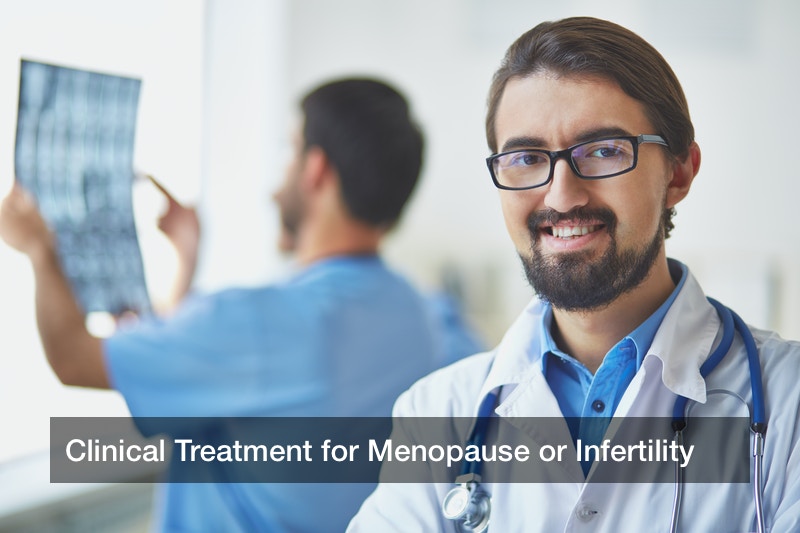

The human body is quite a complex thing, and over the course of a lifetime, a person may experience many different changes in their body, some more tolerable than others. Many women report unpleasant side effects and changes due to menopause, and this major hormonal shift may alter a woman’s entire lifestyle and even her personality. A number of studies have been done to track at what age menopause tends to take place, and what sort of effects it may have on the body and mind alike. This has helped lead to menopause solutions such as hormone therapy, and hormone therapy treatment may prove quite popular among women in their late 40s or their 50s. An anti aging clinic may provide hormone therapy for these women, and in fact even some men may look for hormone therapy as well for their lowered testosterone levels. Hormone replacement may also act as a form of infertility treatment in some cases.
Women and Menopause
Strictly speaking, “menopause” is a 24 hour span of time when a woman’s hormones shift radically, and all of her life after that period is her postmenopausal phase. What is more, she will also experience perimenopause in the few years leading up to menopause itself, alerting her to impending changes in her hormones and reproductive capacity. Nine in 10 women will experience perimenopause, a period of altered menstrual cycles, and it may last for four years or so. Meanwhile, the mean age of menopause has been determined to be 51, although in some rare cases women in their late 30s may experience or, or a woman may not experience menopause until her early 60s. For the most part, women will go through menopause somewhere between ages 40 and 58. It may also be noted that even though human beings on average live longer than ever before, the average age of menopause has not changed from centuries past. However, many years of chronic stress or depression in a woman’s life may bring about menopause early, according to some 2003 studies.
A woman may not like menopause or the postmenopausal phase. Her estrogen levels will lower, which causes not only infertility but may also result in mood swings and changes, difficulty sleeping, and other discomforts. To prevent this, a woman may choose to find a gynecologist who can refer her to anti aging treatments that a specialized clinic can offer. Many women choose hormone therapy treatment during their perimenopausal years or very early in the post menopausal phase, when this hormone therapy is most likely to have an effect. If done later than that, hormone therapy might not have an effect at all. But if done correctly, hormone therapy can lead to more stabilized moods and better sleep, among other benefits. Women may note that increased estrogen will also lead to higher risks of breast cancer, so a woman who undergoes hormone therapy is urged to regularly visit a clinic for mammography and other imaging.
Infertility Issues
Another arena of women’s health is infertility, and this is not uncommon. Many American women experience unexpected difficulty getting pregnant even if they are many years away from menopause. What might cause this? The problem can be either due to her body or that of her male partner, or even both. In the woman’s case, the cause may be the ovaries’ failure to release oocytes (egg cells) through the fallopian tubes, therefore making fertilization impossible. In other cases, the oocyte may attach itself to the fallopian tube, where it certainly doesn’t belong. Heavy use of drugs, tobacco, or alcohol may also lower a woman’s infertility, as may chronic stress or depression. Women in impoverished and economically challenged households often have trouble conceiving.
Visiting a gynecologist and fertility clinic can help. A woman, and possibly her male partner, can be tested to find out if the issue is biological, and a patient may have surgery done or start medication to improve their fertility. That, or they may be urged to change their lifestyle, such as quitting smoking or cutting back on alcohol. Counseling or therapy for depression or stress may also make a positive difference. And in some cases, women choose a surrogate mother, if they themselves can’t carry the child for some reason.